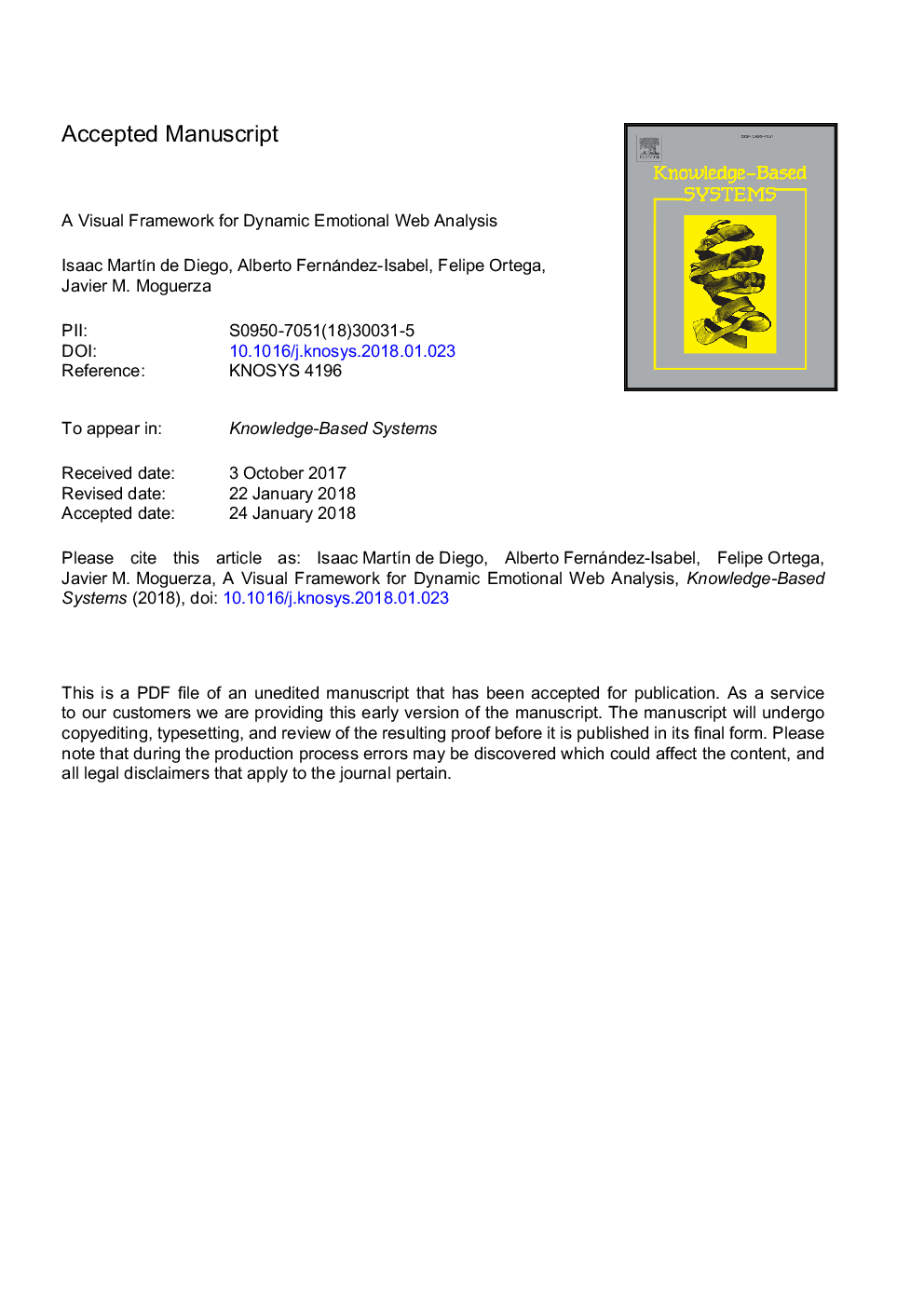ترجمه فارسی عنوان مقاله
یک چارچوب بصری برای تجزیه و تحلیل وب سایت عاطفی پویا
عنوان انگلیسی
A visual framework for dynamic emotional web analysis
| کد مقاله | سال انتشار | تعداد صفحات مقاله انگلیسی |
|---|---|---|
| 140964 | 2018 | 25 صفحه PDF |
منبع

Publisher : Elsevier - Science Direct (الزویر - ساینس دایرکت)
Journal : Knowledge-Based Systems, Volume 145, 1 April 2018, Pages 264-273
ترجمه کلمات کلیدی
تجزیه و تحلیل احساسات، ترکیبی از اطلاعات، مقیاس چند بعدی، نمایندگی دانش، سیستم یادگیری بی نظیر،
کلمات کلیدی انگلیسی
Sentiment analysis; Combination of information; Multidimensional scaling; Knowledge representation; Unsupervised learning system;

